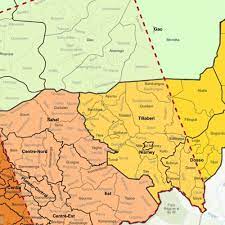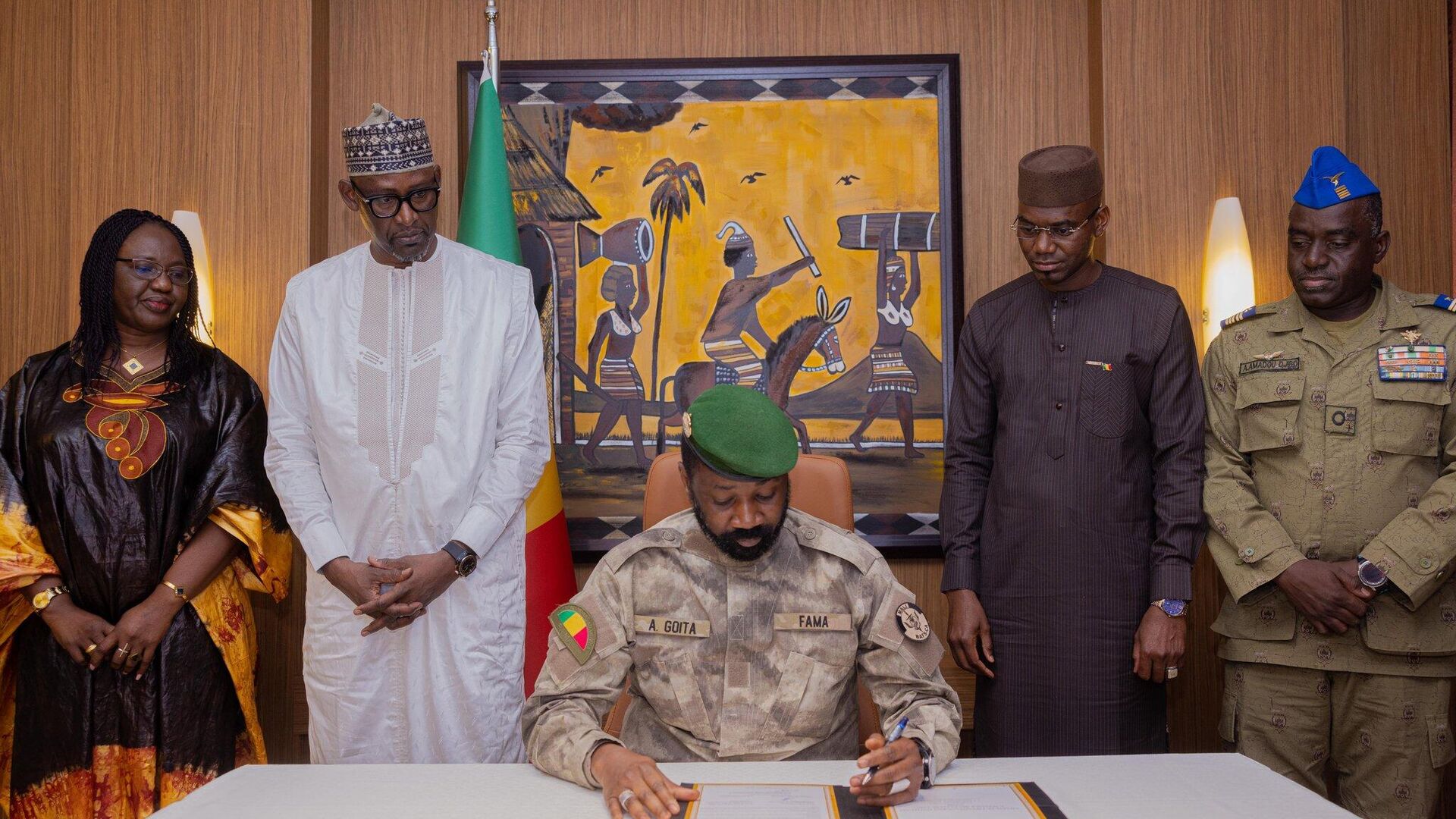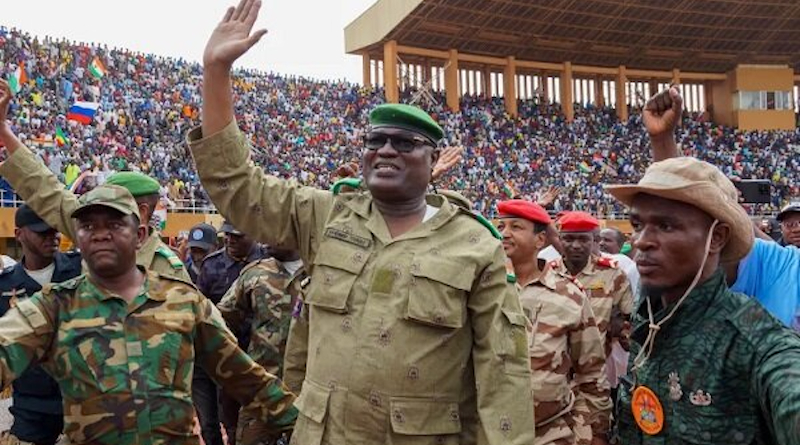Niger, Mali and Burkina Faso Sign Military Pact at Liptako-Gourma Borders Area
As threats from France continue against the military governments in West Africa, the new heads-of-state view a unified approach as the only suitable response to imperialist aggression

All Global Research articles can be read in 51 languages by activating the Translate Website button below the author’s name.
To receive Global Research’s Daily Newsletter (selected articles), click here.
Click the share button above to email/forward this article to your friends and colleagues. Follow us on Instagram and Twitter and subscribe to our Telegram Channel. Feel free to repost and share widely Global Research articles.
***
Since the July 26 seizure of power by the National Council for the Safeguarding of the Homeland (CNSP) in Niger, threats of direct military intervention have been pervasive from France and the Economic Community of West African States (ECOWAS).
ECOWAS is obviously not acting in the interests of the people of the region with the Federal Republic of Nigeria newly elected President Bola Tinubu seeking to strengthen ties with the United States and France.
France has refused to withdraw its ambassador from Niamey claiming that the envoy is being held hostage by the CNSP government. Such statements by President Emmanuel Macron are designed to provide a rationale for some type of military strike or a longer-term intervention in Niger to undermine the political trajectory of the new government.
Even prior to the signing of the Liptako-Gourma Charter on September 16, the military governments in Mali and Burkina Faso said publicly that any attack against the CNSP in Niger would be considered an act of war against their respective administrations. Reports from the region indicate that tensions are escalating in the border areas of all three states who are signatories to the new accord. The involvement of France in these hostilities cannot be ruled out by the CNSP and other allied forces.
West African military leaders sign Liptako-Gourma Charter
ECOWAS has toned down its boisterous threats of a military invasion of Niger to reinstall Mohamed Bazoum as president. Bazoum was endorsed by Paris and Washington as someone who would support the ongoing presence of U.S. Africa Command (AFRICOM) troops along with the French Foreign Legion.
However, their purported shift to a more diplomatic approach to the situation in Niger is a reflection of the widespread opposition to a military intervention by various sectors of the population and political structures in the ECOWAS states. The Nigerian Senate, which is dominated by President Tinubu’s own party, the All-Progressive Congress (APC), rejected his proposal for an intervention in neighboring Niger.
Niger CNSP leaders greet masses and political rally
The U.S. administration of President Joe Biden has sought to maintain dialogue with the CNSP by backing away from describing the July 26 rebellion as a military coup. A report during mid-September claimed that the Pentagon has resumed some surveillance operations in Niger which have been suspended since the seizure of power by the military government in Niamey.
According to a report published by the Associated Press in response to a press conference held by Pentagon officials:
“The Pentagon said Thursday (Sept. 14) that it has not restarted counterterrorism operations in Niger, a day after the head of U.S. airpower for Europe and Africa said those flights had resumed. Gen. James Hecker, responding to a question from The Associated Press at a security conference Wednesday (Sept. 13), said the U.S. military has been able to resume some manned aircraft and drone counterterrorism operations in Niger. But the Pentagon issued a statement Thursday saying those missions are only for protecting U.S. forces and not the more sensitive, and broader, counterterrorism operations U.S. forces have successfully run with the Nigerien military in the past, adding “stories to the contrary are false.”
Sanctions have been imposed through ECOWAS on the CNSP and the other governments aimed at weakening their resolve to institute the changes they feel are necessary for their countries. This appropriate challenge to these sanctions and a vicious propaganda campaign emanating from Paris is to strengthen the alliance between Burkina Faso, Mali and Niger.
Interestingly the push for war by imperialist states coincides with the declaration of a food emergency in the Federal Republic of Nigeria, the most populous and largest economy on the African continent. The food insecurity crisis in the ECOWAS states is also being experienced in East Africa, where a threat of famine was narrowly avoided over the last several months.
In addition to food insecurity, an inflationary spiral is impacting countries like Nigeria whose new government under President Tinubu eliminated fuel subsidies. In Kenya, the largest economy in East Africa, President William Ruto has raised taxes which prompted demonstrations and violent unrest organized by the political opposition.
In an article on the recently signed military pact in the Sahel, the Ecofin news agency quoted statements made by the interim leader of Mali, who said that:
“’I have signed today with the heads of state of Burkina Faso and Niger the Liptako-Gourma Charter establishing the Sahel States Alliance (AES) aimed at creating a framework for collective defense and mutual assistance for the benefit of our populations,’ Mali’s junta leader, Assimi Goïta, wrote on X (formerly Twitter). Speaking on the alliance, the Malian Foreign Minister Abdoulaye Diop explained that per the charter, “any violation of the sovereignty and territorial integrity of one or more contracting parties will be considered an aggression against the other parties and will trigger a duty of assistance and relief by all parties, individually or collectively, including the use of armed force to restore and ensure security within the area covered by the Alliance.”
Impact of Draconian Sanctions on the CNSP Government in Niger
Niger is one of the least developed countries in the world. Despite its wealth in strategic resources such as large deposits of uranium, the country ranks economically as being 138th globally.
The World Data website which publishes reports on the status of economic growth internationally, said of the situation in Niger:
“The average monthly income in Niger is 51 U.S. Dollar per capita. In the U.S.A., the figure is 6,364 U.S. Dollars. However, the prices of consumer goods are also around 62.9 percent lower than in the U.S.A. If you compare income and price levels, the result is a more expensive life in Niger than in the United States. The bottom line is that the costs do not offset the lower income, and you get about 97.8 percent less. However, it is also important to remember that this is a purely statistical model. Both the labor output and the type and quality of the goods received always correspond to the national average on both sides of the equation – so they do not necessarily have to match. Here you can also find an international comparison of cost of living and purchasing power.”
In reports coming out of the Malanville border crossing between Niger and northern Benin, thousands of trucks are backed up for miles with goods destined for distribution in the targeted state. This is a direct result of the sanctions imposed on the country by the ECOWAS regional organization which is now headed by President Tinubu of Nigeria. See this.
As a result of the sanctions, the price of food, fuel, clothing, industrial supplies, medicines, and other goods are skyrocketing. Some 6,000 tons of humanitarian assistance from the United Nations World Food Program (WFP) are being prevented from entering Niger.
The country was already under extreme economic distress due to the overall financial and food crisis throughout Africa and the world. At present, the WFP says that over three million Nigeriens are struggling to eat even one meal per day. WFP officials indicate that if the sanctions are not lifted, 10 million people in Niger, around 40% of the population, would be facing even more shortages of basic foodstuffs.
These sanctions are designed to pressure the CNSP government into abandoning its core political values. Nonetheless, the support for the military administration in Niger has grown as illustrated by the mass demonstrations inside the country that are attracting tens of thousands of enthusiastic youth and workers.
Plans for various economic development projects have been suspended due to the imperialist-instigated sanctions. Reuters news agency says of the current situation:
“The sanctions are not just threatening Niger’s food and aid supplies. Nigeria has cut power supplies, jeopardizing medical care in hospitals, [a leading CNSP leader Gen. Abdourahmane] Tiani said. Niamey-based entrepreneur Maxime Kader told Reuters he had to stop selling poultry incubators due to a lack of plywood and low power. Large-scale infrastructure projects have also been hit by the fallout. The freezing of regional financial flows has halted construction on a Chinese-led dam project that was meant to boost food security. Forecasts of economic growth of 7% this year was based on the expected launch of an oil pipeline from Niger to Benin, but it has not been clear how the coup has impacted work to complete the PetroChina (601857.SS) -backed project. PetroChina did not reply to a request for comment.”
One of the demands which needs to be advanced in Africa and internationally, is the immediate lifting of these sanctions. Anti-imperialist forces in the western capitalist states could insist that the governments of France, the U.S. and other NATO countries withdraw support for this de facto economic blockade of Niger by their allies in the ECOWAS region.
The people of Niger have an inherent right to self-determination and national sovereignty. They should be allowed without interference to settle their own internal problems irrespective of the interests of France and other imperialist states.
*
Note to readers: Please click the share button above. Follow us on Instagram and Twitter and subscribe to our Telegram Channel. Feel free to repost and share widely Global Research articles.
Abayomi Azikiwe is the editor of the Pan-African News Wire. He is a regular contributor to Global Research.
All images in this article are from the author



